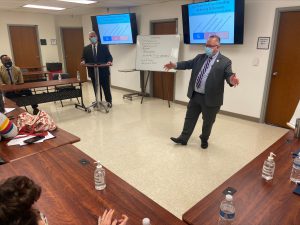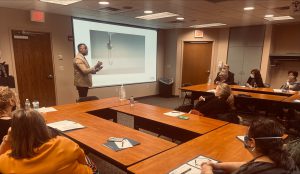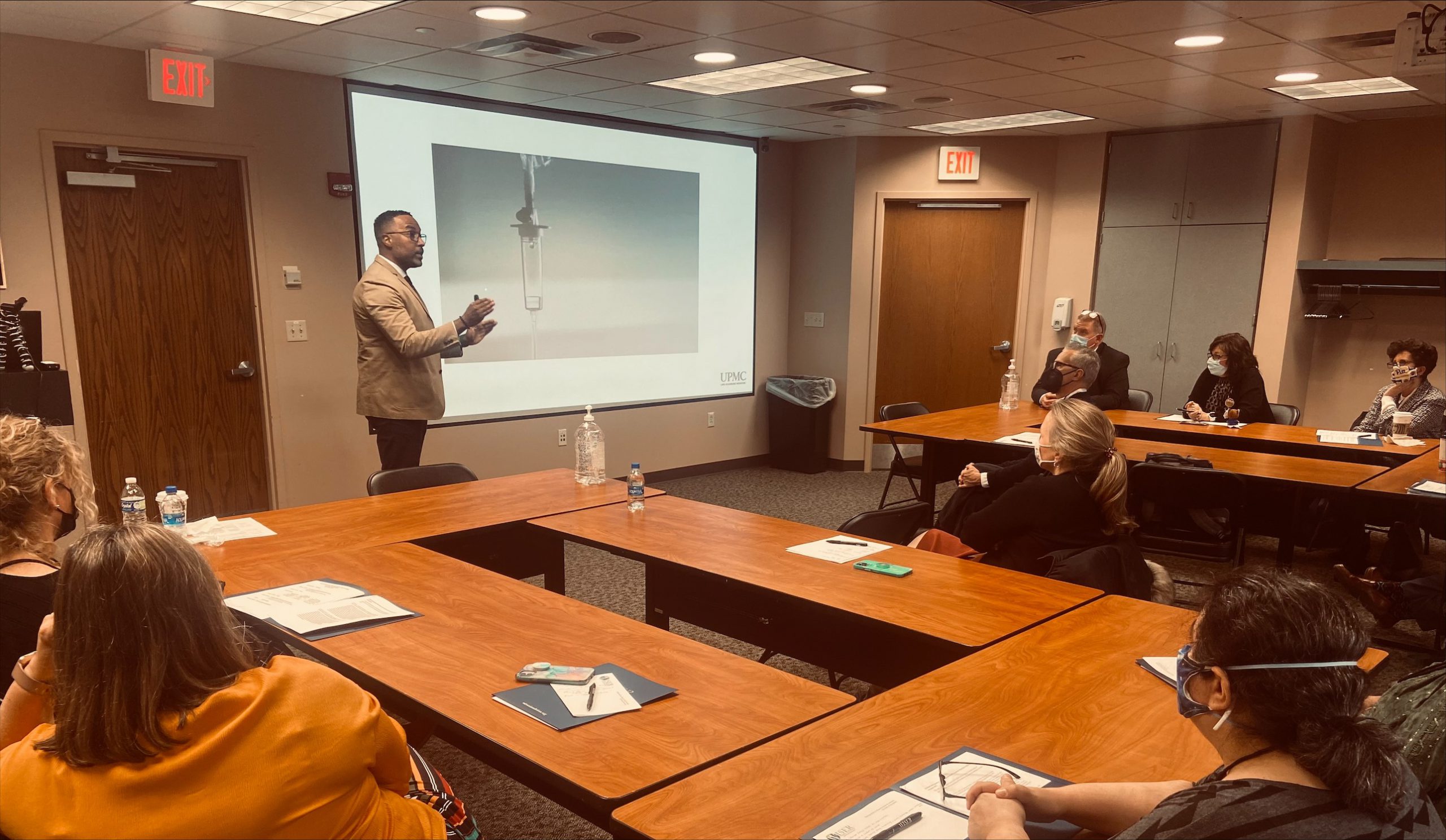
WISER Diversity Symposium Seen Around the World
WISER Highlights Spring 2022
WISER Fellowship Alumna to Participate in 18th Annual Safar Symposium
WISER Fellowship Alumna to Participate in 18th Annual Safar SymposiumWISER Highlights Spring...
WISER Academy- Providing Skills and Knowledge to Healthcare Education Professionals
WISER Academy- Providing Skills and Knowledge to Healthcare Education ProfessionalsWISER...
Simulation Information Management (SIMS)- Let SIMS Manage Your Center
Simulation Information Management (SIMS)- Let SIMS Manage Your CenterWISER Highlights Spring...
Director’s Corner with Dr. Paul Phrampus
Director’s Corner with Dr. Paul PhrampusWISER Highlights Spring 2021Greetings Friends of WISER,...
WISER Director Dr. Paul Phrampus Earns Certified Physician Executive (CPE) Credentials
WISER Director Dr. Paul Phrampus Earns Certified Physician Executive (CPE) CredentialsWISER...
WISER hosted its much-anticipated Diversity, Equity, and Inclusion symposium on April 8. “Getting WISER on Diversity, Equity, and Inclusion: The Roles of Simulation” connected industry leaders in continuing the important conversations around discrimination, bias, and social determinants of health.
“What better way than to learn from each other?” asked keynote speaker Dr. Kellie Bryant, Associate Professor of Nursing at Columbia University Irving Medical Center.
Through this work, the simulation field can continue examining and improving our own teams’ awareness, behaviors, and curriculum to improve our participants’ learning and patient care.
Plenary speakers and discussion panelists began the morning sessions virtually, while WISER hosted the afternoon workshops at its Oakland location in Pittsburgh. This allowed participants to join from across the world while also connecting the UPMC (University of Pittsburgh Medical Center) and Pittsburgh regional simulation community.
Dr. Bryant kicked off the morning sessions discussing the importance of developing self-awareness and using that awareness to drive the development and design of effective educational activities that help learners reduce discrimination in their health practices.
Fellow keynote speaker Dr. Victoria Brazil, medical director of the Gold Coast Simulation Service in Australia, built on the concept of “radical self-awareness” and challenged participants to consider what messages we are sending through each simulation. “Our omissions send just as powerful messages” as our inclusions, she explained as she shared a reflexive tool for simulation teams to use in making their processes thoughtful and deliberate.
Paula Davis, Associate Vice Chancellor for Diversity, Equity, and Inclusion, Health Sciences at the University of Pittsburgh, then moderated Dr. Bryant, Dr. Brazil, and Dr. Julius Kitutu further exploring their personal perspectives and recommendations in how to build effective diversity initiatives.
Dr. Kitutu, Chief Diversity Officer and Associate Dean for Student Affairs & Alumni Relations and Associate Professor at the University of Pittsburgh said that he found working in diversity inclusion rewarding because “it has created a space for students and faculty members to talk about” a wide range of issues regarding discrimination, leading to discussions that develop understanding and lead to solutions. It’s “an area where I can talk about the positive, not only within the school but outside the school.”
The morning’s virtual sessions were closed out with a discussion led by Dr. John O’Donnell from the University of Pittsburgh on the role of technology within the inclusivity space, with Dr. Nuwan Perera participating in a virtual reality session focused on a patient’s experience with racial bias from her son’s care team.
When the event reconvened on site for the afternoon, Dr. Rikki Tripp and Dr. Mohamed Hagahmed led a discussion on “upstander” actions and how to “interrupt, question, educate, and echo” to react and address discrimination when you see it. They reviewed cultural awareness and considerations that should be included when designing simulation for healthcare practitioners.
Dr. Tripp said of the afternoon sessions, “This was a great, empowering experience with a group of diverse backgrounds coming together to increase awareness of the DEI initiative and understanding.” She explained that she wants “to build better education tools and resources. Simulation will be one of those avenues.”
Participants then broke into small groups to conduct workshops focusing on how to address diversity and inclusion through scenario design, debriefing, and the inclusive standardized patient design. During the conclusion discussion, groups summarized their sessions and major takeaways, all of which included common threads of awareness and deliberate objectives driving how training choices are made.
Dr. Ashlye Yarabinec, who works at the University of Pittsburgh’s pharmacy school, said the day’s sessions were “extremely stimulating and full of good discussion. Very fulfilling and informative.” She said she attended the symposium because she wants “to increase the student experience with the diverse population and getting those experiences in simulation will help increase growth and development.”
Thank you to everyone who attended and participated in the symposium, and to WISER co-chairs Bianca Caruso and Noreen Mahboob, who led the event’s extensive planning and implementation!



